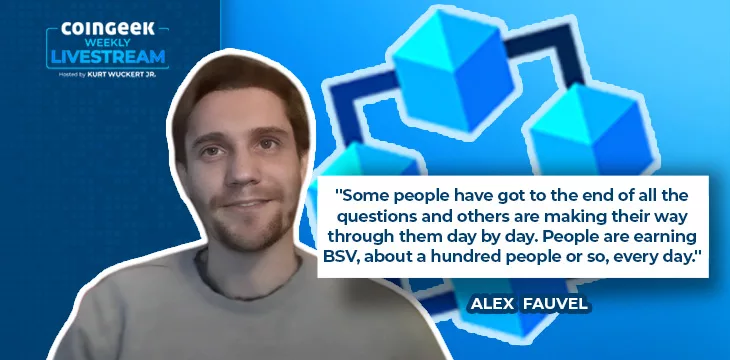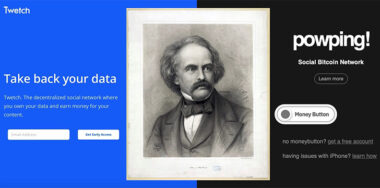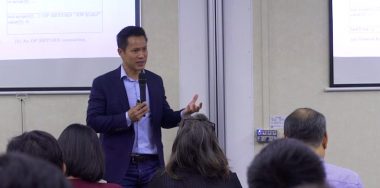| Getting your Trinity Audio player ready... |
On this episode of the CoinGeek Weekly Livestream, Alex Fauvel joined Kurt Wukcert Jr. to give an update on Dark2Light. For those who don’t know, it’s a question-based game that utilizes BSV blockchain micropayments and the blockchain to timestamp answers.
The London Blockchain Conference is one month away
Wuckert starts the stream by reminding everyone that the London Blockchain Conference will kick off in about a month. He encourages everyone to attend and watch the conferences and discussions online. Wuckert will be there, and GorillaPool will be represented, too. You can secure London Blockchain Conference tickets here.
An update on Dark2Light
Fauvel tells us it has been a good year for Dark2Light. They’re seeing an uptick in every metric, even if the overall user base isn’t proliferating. People are slowly making their way through the questions.
As a tactile learner himself, Fauvel wanted to create something to show people how Bitcoin worked in the real world. Dark2Light was the solution; it allows people to ask questions they don’t necessarily want people to know they asked or how they answered.
Currently, the BSV blockchain community is still relatively small, but word of mouth is helping spread the game. Some of the original Kickstarter games are still available and could be collectibles in the future. The team is open to printing on demand once this batch runs out, but it all depends on the consistency of quality and how much that matters to users.
A demonstration of Dark2Light
Wuckert and Fauvel then demonstrate the game and examine some questions. They cover:
- Do people know how to meditate properly?
- Has the Bible been manipulated?
- Are you the sole consciousness in the simulation?
- Is the sea level rising globally?
- Do you think most people are NPCs?
- Is BTC a Ponzi scheme as it is designed?
- Does telepathy exist?
Fauvel points out that answering these questions earns users micropayments, so an excellent way to get started is to answer them until you have enough to ask your own.
Some game features are the ability to boost questions ($0.25, which pays the owner $0.10), the ability to own questions, and ways to slow down bots, such as by making it so you have to hold a button down to answer.
User questions and answers
As always, Wuckert opens the stream to user questions and answers. Here’s a quick look at some of the best ones.
Q. How can question creators earn money?
Fauvel explains that questions are the platform’s base, and everything will be built around them. Users who boost questions pay $0.10 to the owner to do so. They also earn 1/10th of a cent per vote. Since questions can only be asked once, owning a good one could be profitable.
Q. What are the most important coding languages to know?
Fauvel says sCrpyt and Javascript are excellent choices, as are Rust and Forth. Wuckert is a fan of Go and says the GorillaPool team specializes in it.
Q. What does the Bitcoin halving mean?
Wuckert explains that every new Bitcoin block has a block reward. That reward gets cut in half every 210,000 blocks or approximately every four years. He refers to this as Satoshi’s ticking time bomb, reminding us to generate enough transactions to replace the block subsidy.
Q. What’s the safest way to store BSV?
Wuckert says that both HandCash and CentBee are good, but they’re not the best solutions for catastrophic situations like EMPs. He says to find and wipe an old phone or buy a brand new one, download a wallet like RockWallet or SimplyCash, generate and safely store the private keys, and turn the phone off forever. This is the definition of cold storage and is the safest option.
Watch: Moving from free-to-play to play-to-earn gaming with blockchain help
New to blockchain? Check out CoinGeek’s Blockchain for Beginners section, the ultimate resource guide to learn more about blockchain technology.









